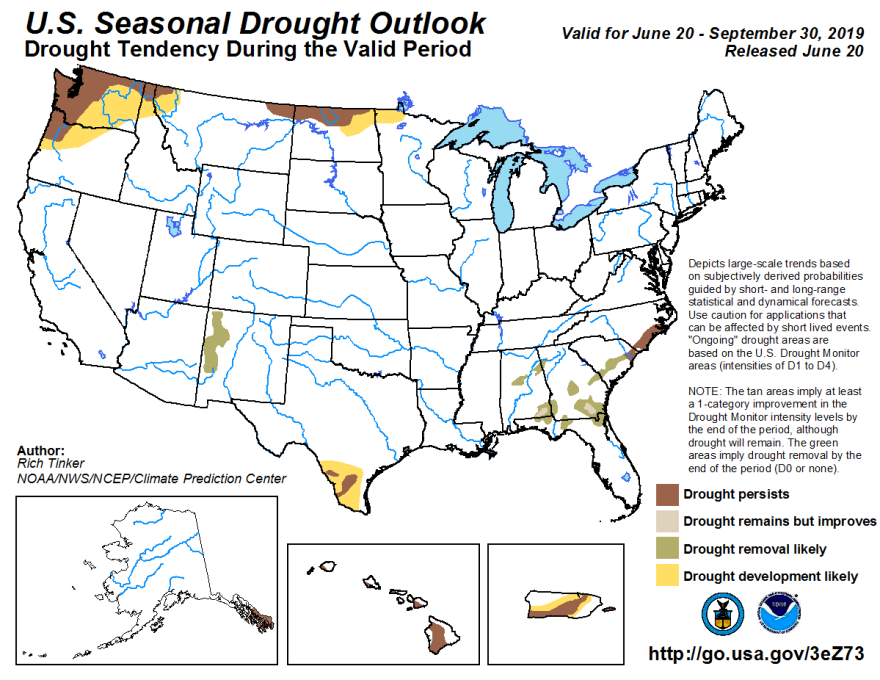The U.S. Drought Monitor of North Carolina released their statewide assessment on Thursday classifying eleven counties in Eastern North Carolina, including Carteret, Craven, Duplin, Jones, Onslow, and Pamlico, in moderate drought. Farmers across the region are citing abnormally dry and hot conditions for failing summer crops. The drought comes at a time when many growers are still trying to recover from Hurricane Florence ten months ago.
"Every farmer has been affected somehow or another,” said Don Nicholson, a regional agronomist with the N.C. Department of Agriculture. “We need rain. We don't need deluges, we don't need hurricanes right now “We need just an inch a week would be a blessing to a lot of farmers.”
The drought conditions have hit one of North Carolina’s cash crops hard this season. A lack of rainfall and hot temperatures have caused corn to stop growing in some areas of Eastern North Carolina.

"Ninety-six degrees is kind of the magic number you're looking for. If it's over 96 degrees and that crop is tasseling, which means it's flowering, the pollen has a hard time living so if it can't pollinate, it can't make corn," said Nicholson.
The long, hot summer days are also causing sunburn on vegetable crops, which makes them less marketable at grocery stores or roadside stands. If drought conditions continue through August, farmers may lose more drought-tolerant row crops, like tobacco, cotton, soybean, and peanuts.
"We just try to water enough to keep it alive because we prefer rain. Rain does a whole lot better than irrigation,” said Clayton Garner Jr., the president of Garner Farms Inc., a family owned 300-acre farm in Newport.
This summer, Garner has resorted to using irrigation systems to water his most valuable crops; like sweet corn, green beans, cantaloupes, watermelons, and butter beans. Still, the dry and hot weather greatly reduced the yield of several of his lesser sweet corn varieties resulting in the loss of tens of thousands of dollars of upfront costs.

"On the varieties that I don't irrigate, I'm probably at a 50% loss, at least a 50% loss on those. Some of them, I won't even make enough money to pay for my seed or the fertilizer I use," said Garner.
The dry and hot weather comes just 10 months after Hurricane Florence flooded fields and destroyed all the greenhouses at Garner Farms. It took nearly six months for the farm to reopen. Despite the setbacks, Garner hopes to recoup some of his lost income during the fall season with soybeans, pumpkins, and their corn maze.
“That type of stuff can actually help with some of the burden from last year, and some of our losses from this year,” said Garner. “But it’s just a matter of Mother Nature being on our side for the next six months.”
Over the next couple of days, the National Weather Service Office in Newport forecasts approximately 1”-2” of rainfall across the region. Last week, about an inch of rain brought some relief from the dry and hot conditions.

“This rainfall kind of halted that worsening of conditions along the coastal plain,” said Klaus Albertin, the council chair of the N.C. Drought Management Advisory Council. “But definitely in most cases, did not remove the abnormally dry or moderate drought conditions.”
Farmers in Eastern North Carolina will likely have to tolerate the hot and dry conditions for at least a couple more months. According to the National Weather Service's Climate Prediction Center, drought conditions are expected to continue thru Sept 30th with slightly above average temperatures forecast for the next three months.



